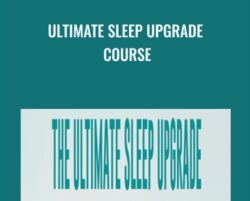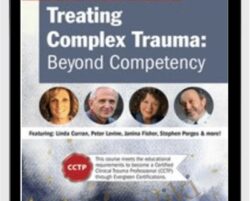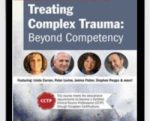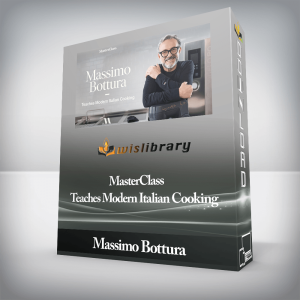Intensify and Expand Your Trauma Treatment CapabilitiesYou know that building the skills to treat trauma and complex PTSD takes ongoing dedication to the craft and science of therapy… Because trauma treatment is always evolving.That’s why I’ve interviewed world-renowned trauma experts and collected their insights and in-session demonstrations in this all new online certification training course…You’ll get insight into proven trauma processing modalities from the developers of these techniques. You’ll learn about:Internal Family Systems (IFS) Therapy from developer Dr. Richard Schwartz, and Dr. Frank Anderson, vice chair and director of the Foundation for Self LeadershipGestalt Therapy from David Henrich, who has studied for more than 30 years, and Dr. Mary Lou Schack, one of the founders of the Gestalt Therapy Institute of Philadelphia (GTIP)Eye Movement Desensitization and Reprocessing (EMDR), from Dr. Laurel Parnell, one of the most recognizable experts in the fieldMindfulness-Based Stress Reduction from pioneering teacher and leader in the clinical application of mindfulness meditation Elana RosenbaumThe Adverse Childhood Experiences (ACE) Study from Dr. Vincent Felitti, co-principal investigator of the studyBrainspotting, from the developer of this internationally acclaimed method Dr. David GrandSomatic Experiencing from its developer Dr. Peter LevinePolyvagal Theory from the founder, Dr. Stephen PorgesEmotionally Focused Couples and Family Therapy (EFT) from the founder, Sue JohnsonCompassionate Inquiry for treating addiction, ADHD and more from developer Dr. Gabor MatéDialectical Behavior Therapy (DBT) from Dr. Lane Peterson, who also founded Dialectical Behavior Therapy National Certification and Accreditation Association (DBTNCAA), the first active organization to certify DBT providers and accredits DBT programsProlonged Exposure Therapy (PE) from its founder, Dr. Edna FoaCognitive-Behavioral Therapy (CBT) from Dr. Donald Meichenbaum, one of its foundersGet Treating Complex Trauma: Beyond Competency – Linda Curran, Only Price $79Discover what’s been done in the field of traumatic stress, new perspectives on the nature and experience of trauma, and gain a deeper understanding of trauma’s far-reaching psychological and physical consequences.The demonstrations showing these experts’ skills in action help speed the learning and application of their proven processes to your own practice…So you can adapt their experience to create theoretically sound principles that improve your clinical outcomes…And help your clients find lasting relief from the anger, nightmares, shame, anxiety, depression, and other debilitating symptoms of trauma and complex PTSD.Certification Made SimpleIt’s never been easier to become a Certified Clinical Trauma Professional (CCTP-Level 1).Step 1: Watch this online course.Step 2: Complete the Continuing Education quiz and instantly print your certificate of completion.Step 3: Submit your certificate of completion and professional license to Evergreen Certifications.COURSE OBJECTIVESHow the mammalian arousal cycle and stress response inform current trauma treatment.Determine the basics of neurodevelopment in early stages of life and theorize how attachment deficits, left unaddressed, continue to impact adults throughout the lifespan.Employ two methods of grounding a dissociated client in session informed by the Polyvagal theory.Appraise the ACE study and apply its findings to clinical diagnosis and treatment of developmental and attachment trauma.Appraise the diagnostic criteria and clinical presentation of Complex PTSD.Role-play a compassionate approach to self-destructive behaviors with clients in-session.Assess the importance of setting firm boundaries in the therapeutic relationship as it relates to improving treatment outcomes.Debate the current theoretical basis for addiction treatment (i.e. addiction is a choice or a disease) compared to the biopsychosocial theory of addiction.Perform three mindfulness practices; include any clinical modifications for use with a traumatized population.How somatic interventions enable clients to extinguish conditioned responses to procedural memories.Develop an argument for AND against the use of medications with traumatized clients.Define and defend the modifications made to Shapiro’s 8-Phase Model of EMDR when using this protocol with clients with complex trauma.Determine the development of “parts” (a component of IFS therapy) that result from trauma and how their function can be used as a resource for clients.Incorporate the theory and practice of Gestalt Therapy beyond the archetypal empty chair technique into trauma treatment planning.And many more! (see below for complete list)Get Treating Complex Trauma: Beyond Competency – Linda Curran, Only Price $79COURSE MODULESPart One: Biological Nature of TraumaBiological nature of traumaTriune brainBrain/body integration: understanding the brain/body feedback loopMechanisms of traumaPrinciples informing state of the art clinical interventionsTreatment implicationsPolyvagal Theory, with Stephen Porges, PhDLong-term memoryImplicit memoryExplicit memoryDSM-5 trauma diagnosesSingle-incident PTSDAcute Stress DisorderPTSD subtypesTrauma Sequelae: chronology of symptom clusters post-single incident PTSDTrauma symptoms characteristic of early childhood trauma, with Robert Scaer, MDAdverse Childhood Experiences, with Vincent Felitti, MDBackgroundLong-term impact on individualsCorrelation with addictionPublic health implicationsAttachment, with Dr. Bessel van der Kolk, Dr. Diane Poole Heller, and Dr. Dan SiegelNeurodevelopmentAttachment essentialsAttachment security and strategiesDevelopmental trauma disorderPart Two: Definition of Trauma and Trauma ConditionsTrauma: working definitionConditions resulting from traumaPTSSingle incident PTSDComplex PTSDBorderline Personality DisorderBPDStigmaDSM criteriaDevelopmental/attachment traumaBPD and CPTSDParallelsDistinctionCPTSDDiagnosisDSM 5 and ICD-11 specificationsDistinct from PTSD (single incident)Maladaptive behaviorsFunction of addictions and self-injury in individuals with traumaTreatment principles and strategiesDissociation, with Robert Scaer, MDPTSD and CPTSD: “dissociative disorders”Correlation between childhood abuse and re-victimizationTreatment implicationsAddictionMythsNature of addictionTreatment implicationsTrauma and addiction, with Gabor Maté, MD12-step programs and the rehabilitation industryGet Treating Complex Trauma: Beyond Competency – Linda Curran, Only Price $79Part Three: Stage Model of Trauma TherapyStage model of trauma therapyJanet’s tri-phasic model of trauma therapyDual awareness, with Babette Rothschild, MSWHistory takingMindfulness and awareness practices, with Dr. Jim Hopper; Elana Rosenbaum, MS, LICSW; Belleruth Naparstek, LISW, BCD; and Amy Weintraub, MFA, E-RYT 500, C-IAYT, YACEPMindfulnessMindfulness based stress reduction (MSBR)Program breakdownIn-session body scan demonstrationGuided imageryMindfulness/bodyfulnessYogaPacing yoga practice for traumatized populationEffects of trauma on musculoskeletal systemUse of yoga mudras for self-soothingIn session with Amy WeintraubDialectical behavioral therapy, with Lane Pederson, PsyD, LP, DBTCDiscussionTheory and developmentSystematic implicationDBT skills training and toolsIn session with Lane PedersonTrauma and medication, with Frank Anderson, MDThe importance of client agencyEmploying IFS when prescribing medicationsSomatic experiencing, with Peter Levine, PhDIn session with Peter LevineTheory and practiceSomatic Therapy, with Babette Rothschild, MSWIn session with Babette RothschildPart Four: Trauma Processing ModalitiesCognitive behavioral therapy, with Donald Meichenbaum, PhDProlonged exposure therapy with Edna Foa, PhDTheory developmentApplicabilitySensorimotor psychotherapy with Janina Fisher, PhDPsychoeducation in trauma therapy – utilizing cognitive overrideResourcing clientsBody-oriented and somatic interventionsEye-movement desensitization and reprocessing (EMDR)Theory with field leadersShapiros 8-phase modelClinical modifications for complex traumaIn session with Linda CurranInternal family systems, with Richard Schwartz, PhDTheory and applicabilityIn session with Frank AndersonTheory development and practiceIn session with Richard SchwartzGestalt therapyBeyond the empty chair techniqueVerbal narrative vs. body narrativeIn session with Mary Lou Schack, PhDIn session with David Henrich, LCSW, BCDWhen you register today, you’ll receive three FREE bonuses (a $154.97 value!)Bonus 1: Trauma Competency: A Clinician’s Guide eBook ($24.99 value)Recommended for all clinicians working with trauma, this book is a clear and concise, reader-friendly illumination of the HOW and the WHY of trauma treatment.Unique in its approach, Linda Curran not only defines and explains the current trauma paradigm-relevant, theories and current neuroscience, but demonstrates, step-by-step, its in-session clinical utility and applicability.Bonus 2: 101 Trauma-Informed Interventions: Activities, Exercises and Assignments to Move the Client and Therapy Forward eBook ($29.99 value)This workbook pulls together a wide array of trauma treatments into one concise resource. Equally useful in both group and individual settings, these interventions provide hope and healing for the client, and expand and solidify your expertise.The book also includes a link to all reproducible worksheets you can print and use with clients right away!Bonus 3: Your Certification Application Fee is FREE ($99.99 value)Certification made simple! Register today and pay no additional fees to complete your Certified Clinical Trauma Professional (CCTP-Level 1) certification.Get Treating Complex Trauma: Beyond Competency – Linda Curran, Only Price $79Tag: Treating Complex Trauma: Beyond Competency – Linda Curran Review. Treating Complex Trauma: Beyond Competency – Linda Curran download. Treating Complex Trauma: Beyond Competency – Linda Curran discount.
 Vom Einsteiger zum Mastertrader 2.0 – Mastermind Traders
₹56,108.00
Vom Einsteiger zum Mastertrader 2.0 – Mastermind Traders
₹56,108.00
 Ultimate Sleep Upgrade Course – Jesse Elder
₹2,158.00
Ultimate Sleep Upgrade Course – Jesse Elder
₹2,158.00
Treating Complex Trauma: Beyond Competency – Linda Curran
₹12,450.00





